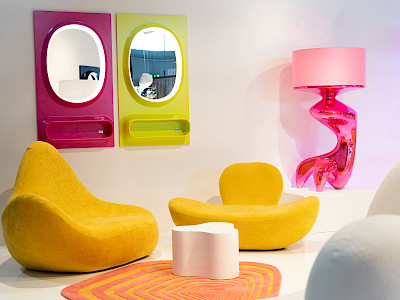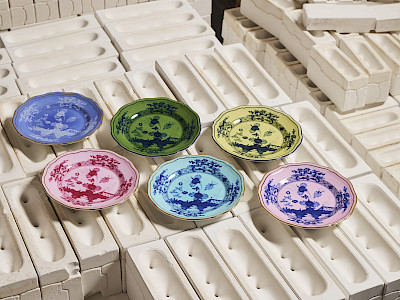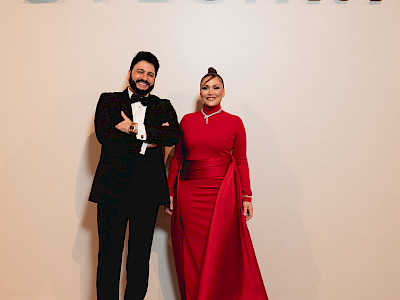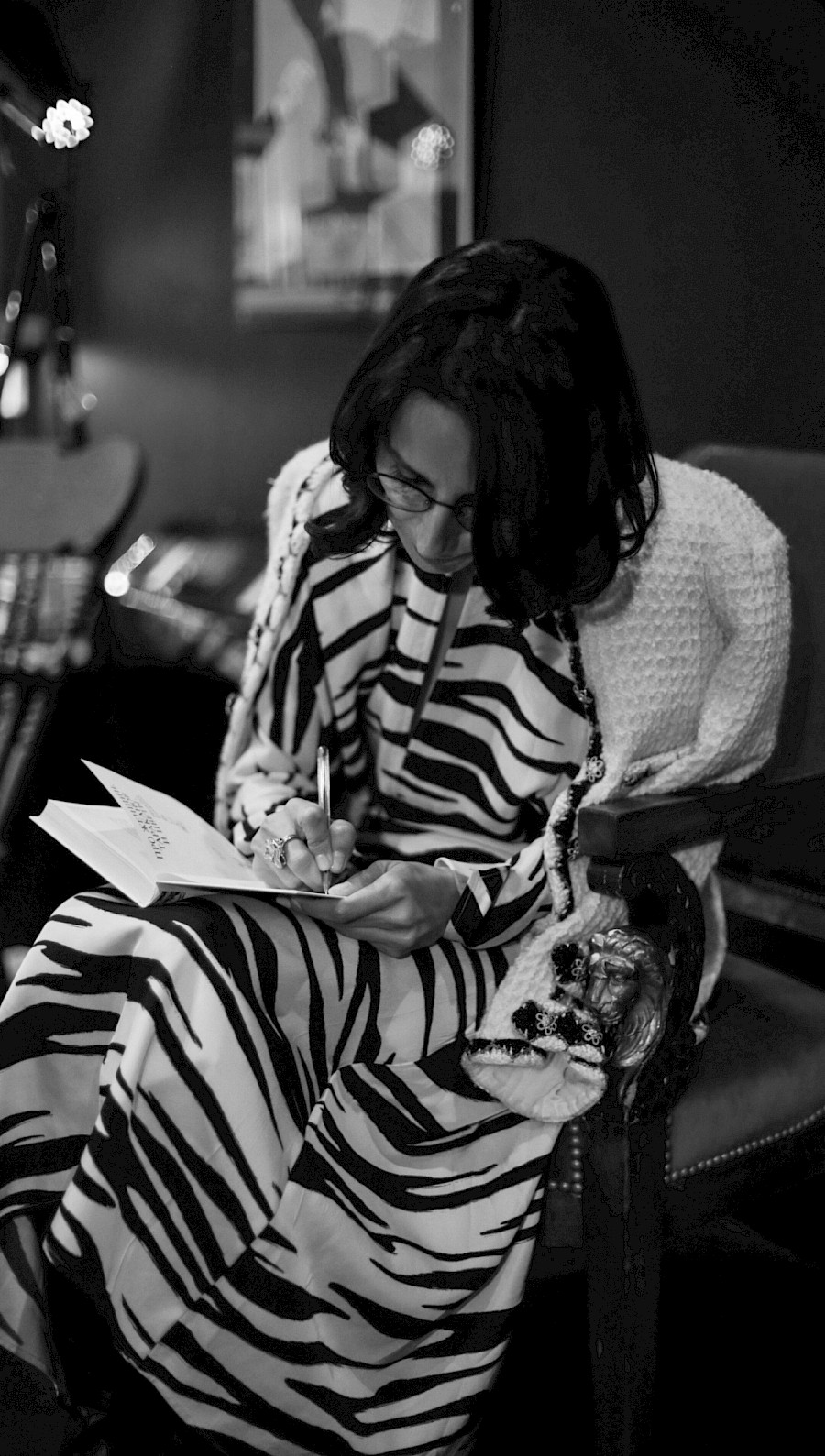
Nataliya Godzhaeva lives in the most romantic city in the world. On her page, she consistently provides invaluable answers to a wide range of questions, while her Instagram posts exude heartfelt sincerity. Her reflections on life on Instagram and her columns in glossy magazines eventually resulted in the book "About Women, Cockroaches, and Flowers," offering readers a chance to escape the mundane and reminisce about childhood dreams. We talked with Nataliya about simple joys and values that make life meaningful.
Your fondest memories from childhood?
That's a truly enlightening question. Reflecting on my childhood feels like looking into a treasure chest, where I continuously uncover something new. One vivid memory stands out: our family tradition of eating laghman together at VDNKh. The route to the laghman shop led past the "Friendship of Peoples" fountain, where my father would always pause and share valuable lessons about the importance of understanding, appreciating, and respecting different cultures. Eager for laghman and ice cream, I would tug at his sleeve, and he would once again remind me that true appreciation comes from recognising the value in diversity, rather than judging based on skin colour or faith. Although I merely nodded along as a child, today I cherish those words dearly, reflecting on them with immense fondness. In general, I am lucky, as I was taught from childhood to look at things outside the box.
I recall the day when my uncle brought several large sacks in the boot of his car in Azerbaijan. I was seven years old, and curiosity naturally got the better of me, so I couldn't resist asking,
"What's in there?"
"There's gold there," my uncle answered me in a whisper.
"Gold? No way..."
"Yes, Natasha, take a shovel, we're going to get the gold."
The sacks contained hay, and to my disappointment, I asked, "What kind of gold
is this? Gold is an expensive thing."
My uncle replied, "It depends on which side you look at it from. For example, for our sheep, hay is more valuable than gold and the most precious thing in the world."
I have many memories – I carefully retrieve them from my mind. Perhaps one day, I will compile them into a book.
What do you share about yourself when you meet someone for the first time?
It depends on the context of the meeting. In a professional setting, I succinctly outline my experience, whereas in a casual setting, I elaborate on my diverse life experiences and various roles.
How does previous professional experience help you today?
Ten years in IT have taught me the importance of swift action and hypothesis testing. If you have an idea, test it, don't wait. In today's fast-paced world, clients can easily switch to competitors, emphasising the need for prompt responses in business. If time is of the essence in business, why do we often perceive life as abundant with it? It's a curious paradox of priorities. My experience in fashion has cultivated my appreciation for beauty. I believe that every individual embodies both masculine and feminine qualities. For me, IT represents the masculine aspect, while fashion taps into the feminine.
I read your words: "...happiness is not hidden in the CEO's job description or even built into the walls of the new flat." Where did you discover it?
Within myself, as happiness is a choice we make. Sounds cliché, doesn't it? It's challenging for us humans to believe in simple things; they don't appeal to us. We prefer to complicate things, believing that overcoming them holds greater value. In moments of doubt regarding whether joy and happiness are truly our choice, I recall a conversation at a party. Initially, guests discussed the news, then delved into arguments about politics and sports, and eventually, the discourse turned to philosophy and happiness. Among the attendees was a Paralympic champion, the most positive person I've ever met. He shared a powerful phrase with us: "If you ever doubt that happiness in life is solely our choice, please remember me and attempt to prove me wrong mentally." I once lived by the formula "achieve first, then happiness follows," but with time, I've come to realise that life changes should begin not by altering outcomes, but by shifting one's perspective on life itself.
How to recognise love?
Oh, quite a difficult question. I believe love changes over the years. In your twenties, it's about the intensity – eating, sleeping, and experiencing both joy and pain – that's how you perceive love. By the time you reach thirty, love means being together, sharing common goals, growing together, evolving, and making progress. And as you hit forty, you come to realise that genuine love is about wanting to bring happiness to the person beside you.
The "craziest" thing you've ever done?
I've done a lot of crazy things. Take, for instance, opening a clothing store at 19, financed through loans. Many called it a crazy move, predicting failure. Yet, it succeeded. Leaving my CEO position to enter a new industry and facing financial uncertainties was deemed crazy. But I took the leap. Moving to France without knowledge of French was considered absurd. They said I'd return home, but I haven't looked back since. It appears that our definition of "crazy" actions varies. Perhaps, we embark on crazy endeavours when our heart overrides our rational thinking. And in my experience, the heart often leads us in the right direction.
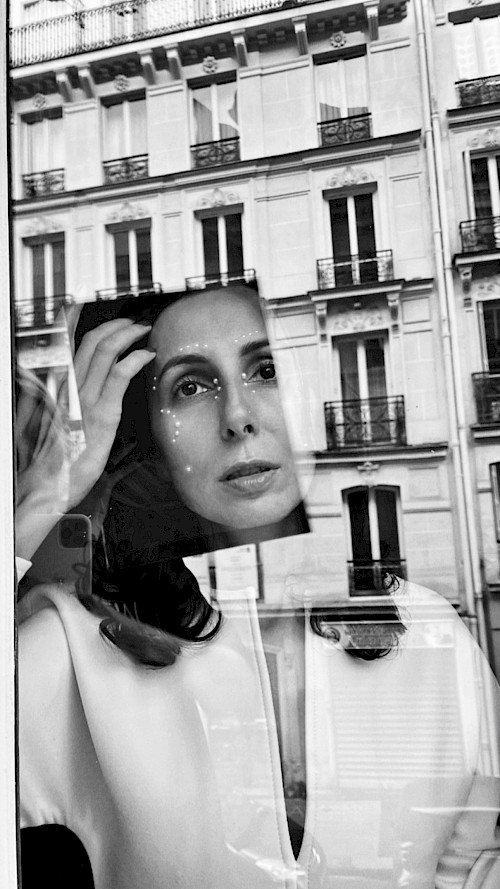
The most romantic place in the world?
Romance can flourish in any setting. At home, a simple act like lighting candles, using elegant crockery, and savouring tea, champagne, or coffee can create an intimate ambiance. A picnic in the park, with a cosy blanket and delectable food served on beautiful plates, sets the stage for a romantic date. Or perhaps, sitting on the veranda of a beloved café, immersed in a book, relishing the tranquillity, can be just as enchanting. Often, we wait for the perfect moment or location for romance, overlooking the potential in the present.
How did you imagine Paris to be when you decided to move there? How did it turn out to be?
I believe I've "married" Paris. In the beginning of any relationship, you envision a life together based on your own script. Yet, over time, reality sets in, bringing with it contradictions and conflicts. The key is to discern what truly matters to you, to love, and to negotiate effectively. Thus far, I've managed to find common ground with Paris, despite its challenging bureaucracy and rental issues. Like people, cities evoke different emotions – we love some deeply, flaws and all, while others fail to earn our forgiveness for even the slightest misstep.
Was there a hint of romance behind your decision to move?
Certainly. I dreamed of arriving in Paris, immersing myself in the art de vivre, and savouring every moment.
I longed to step out of my home without glancing at my schedule, simply lounging in parks or on terraces, embracing the present. Paris is renowned as the epitome of romance, as the French understand the art of living – they enjoy each moment without haste, knowing that true romance unfolds unhurriedly.
What associations does Baku evoke in you?
Baku is the most hospitable city in the world. It's been quite some time since my last visit, yet
I still vividly recall the warm welcome and the delectable dishes served in every home. Even in restaurants, the waiters exude genuine warmth, eager to share their culinary delights. During a phase in my life, I abstained from eating meat. By the way, it was a difficult period for my father. It seems that if I had said I was dropping out, he would not have been as upset as he was at the news that I had given up meat for a while. In Baku, I encountered an elderly waiter who, despite my dietary restriction, insisted on serving me a succulent lamb dish. "I'm sorry, but I don't eat meat," I explained. "That's quite alright, my dear," he replied with a smile. "I don't eat meat either, but this is not meat, it's juicy, like a dessert!" I associate Baku with warmth, hospitality, and sunshine. I long to revisit this charming city, as it holds a special place in my heart.
Do you believe in fate?
My husband and I have been indulging in backgammon lately, finding ourselves pleasantly distracted from work and our phones. In this game, fate plays a role in determining the numbers that land on the dice, yet how we strategise and play is entirely up to us. For me, the interplay between fate and human choice is fascinating. I see it as a delicate balance, a 50/50 blend of destiny and our own decisions.
Your posts have culminated in a heartfelt and sincere book. Can readers expect more delights from you in the near future?
With such strong support from women, I've begun contemplating a second book. Currently, I'm deliberating on the format – whether to write another collection of short stories or to craft a single life narrative. Thinking about all the options.
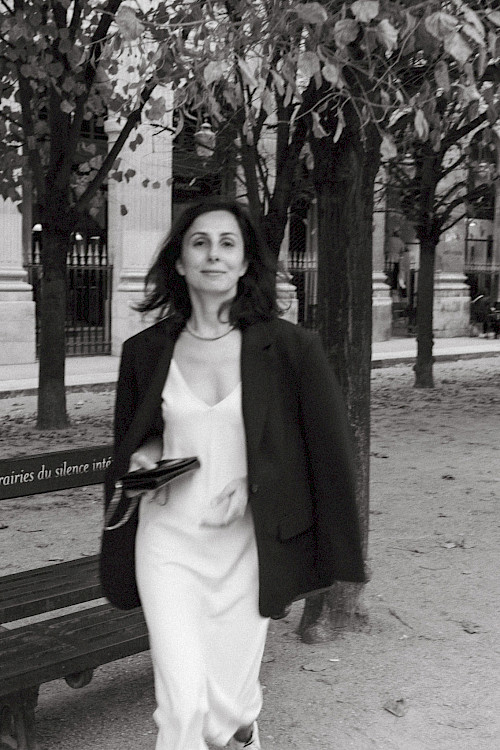 What inspires you most about writing?
What inspires you most about writing?
When I'm writing, it's like stepping into another dimension where time, rush, and worry fade away. It's an endlessly cosy process, a space without constraints or limits. A friend of mine, also a content creator, refers to it as "slow work." There is a lot of creativity in it and there are no boundaries.
Is the opinion of professional critics on your work important to you?
To be honest, no. I don't view my work as literature. I write because I simply can't resist putting pen to paper, and I feel compelled to share my thoughts and experiences. What matters most to me is not the opinion of critics, but rather the feedback from those whom I write for.
Do you have a favourite author?
One writer, much like a director, cannot be singled out.
I admire Chekhov for his tragicomic style, as well as Dovlatov, Ilf and Petrov, Jean-Michel Guenassia, among many others.
You have a real gift for raising very important questions and providing truly healing, life- affirming answers. Do your loved ones often come to you for personal advice?
Thank you! I'm quite cautious about offering advice to loved ones. I only do so when asked, and only if I sense the person is ready to hear it, without placing the burden of the decision on me. It's always a fine line.
Is there a cure-all for indifference?
You know, for some reason, a not-so-funny anecdote came to mind: "What do you think is the greatest misfortune of our society: ignorance or indifference?" "I don't know, and I don't care." Unfortunately, there's no pill for indifference. If it were that simple, people wouldn't be indifferent to themselves, let alone to others.
How often do we show indifference to ourselves? Thanks for posing this question – it got me thinking.
What do you think could save the world? And what might destroy it?
The world may be saved not by faith in life after death, but by faith in humanity, in each of us. Perhaps if the most important value is not the promise of paradise, but the life of each person here on earth, then we will begin to build societies, states, and rules in a completely different way.
What's in store for us?
Love, victories, defeats, discoveries, mistakes, losses, happiness, sadness, joy. There is still more waiting for us and that's the most valuable aspect of it all!

